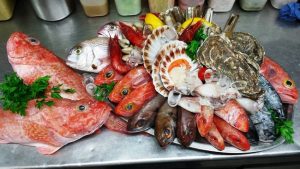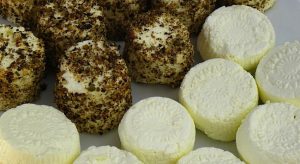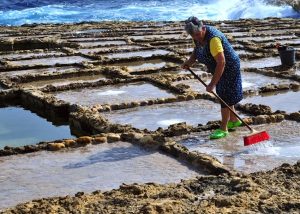The flavour of Maltese cuisine is the result of a 7,000-year relationship with the many civilisations that have occupied the Maltese Islands. A tantalising melting pot of cultures, including the Sicilians, Romans, Spanish and French, have influenced the unique blend of Maltese cooking.
Fresh Seafood
Lying virtually at the centre of the Mediterranean, it was inevitable that seafood would become a staple of the Maltese diet. The year-round warm climate allows visitors to experience alfresco dining on an array of seafood caught that day, including tuna, swordfish, prawns, lobster, calamari, octopus, and lampuki.

Traditional Cuisine
Visitors can enjoy local specialities including Pastizzi, a delicious savoury filo pastry filled with either rich ricotta cheese or mushy peas; Malta’s national dish Fenek, rabbit stew; Kunserva, concentrated tomato paste; Imqaret, sweet pastry packages filled with dates and spices; Ftira, Maltese bread; Maltese sausage; and Gozitan cheeselet.

Foodie Experiences
The dynamic contemporary gastronomic culture that blends international cuisine with homegrown flare has influenced a number of mouth-watering food experiences for visitors. Malta is regarded as the land of honey and travellers can explore apiaries to understand the honey-making journey. Travel to Gozo and learn how to make Ġbejna, a delicious creamy cheese made using a combination of goat and sheep milk. A trip to Malta wouldn’t be complete without tasting Maltese olive oil – and visit an olive farm to learn how it’s made.
The Xwejni Salt Pans in Zebbug, Gozo, harvest salt during the summer months and are open for visitors to explore. Despite the generational gap, the harvesters of Xwejni have relied on the most traditional means possible to produce salt of such high calibre.

Wine Exclusive to Malta
Malta is gaining international attention as an emerging wine region. Despite the islands’ small size there’s a broad selection of white, red and rosé wines to choose from. The Maltese Islands don’t produce enough wine to export – so it’s a must to have a glass of wine while you are on the islands. The delicious taste will draw you back to Malta time and time again.

* * * *
Now you can put your knowledge to the test and take our Malta Training Programme! Simply log on to:


